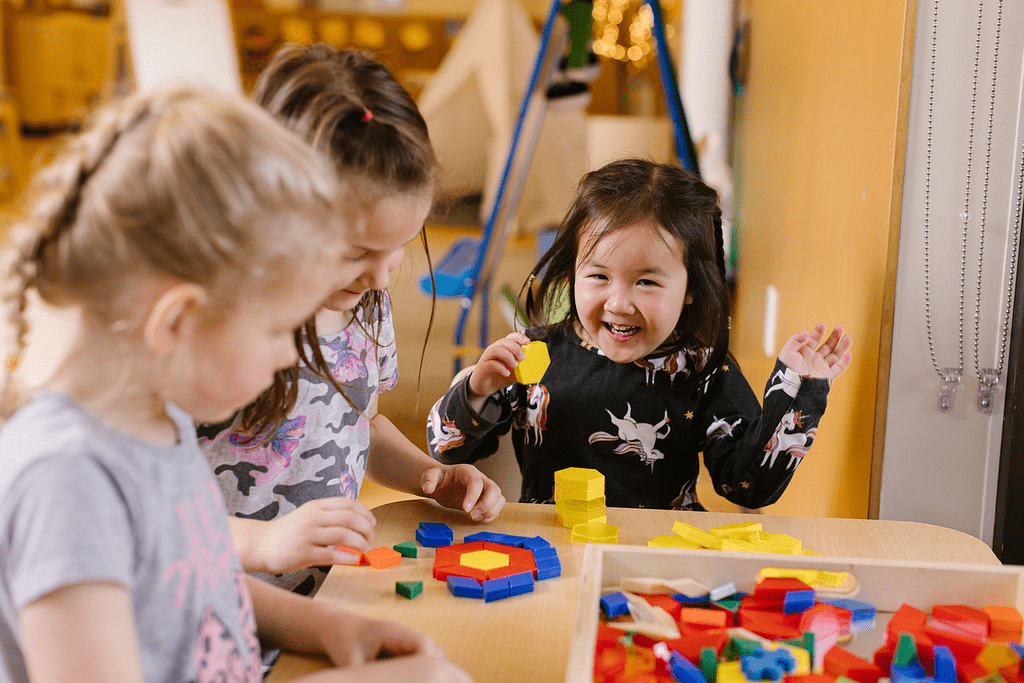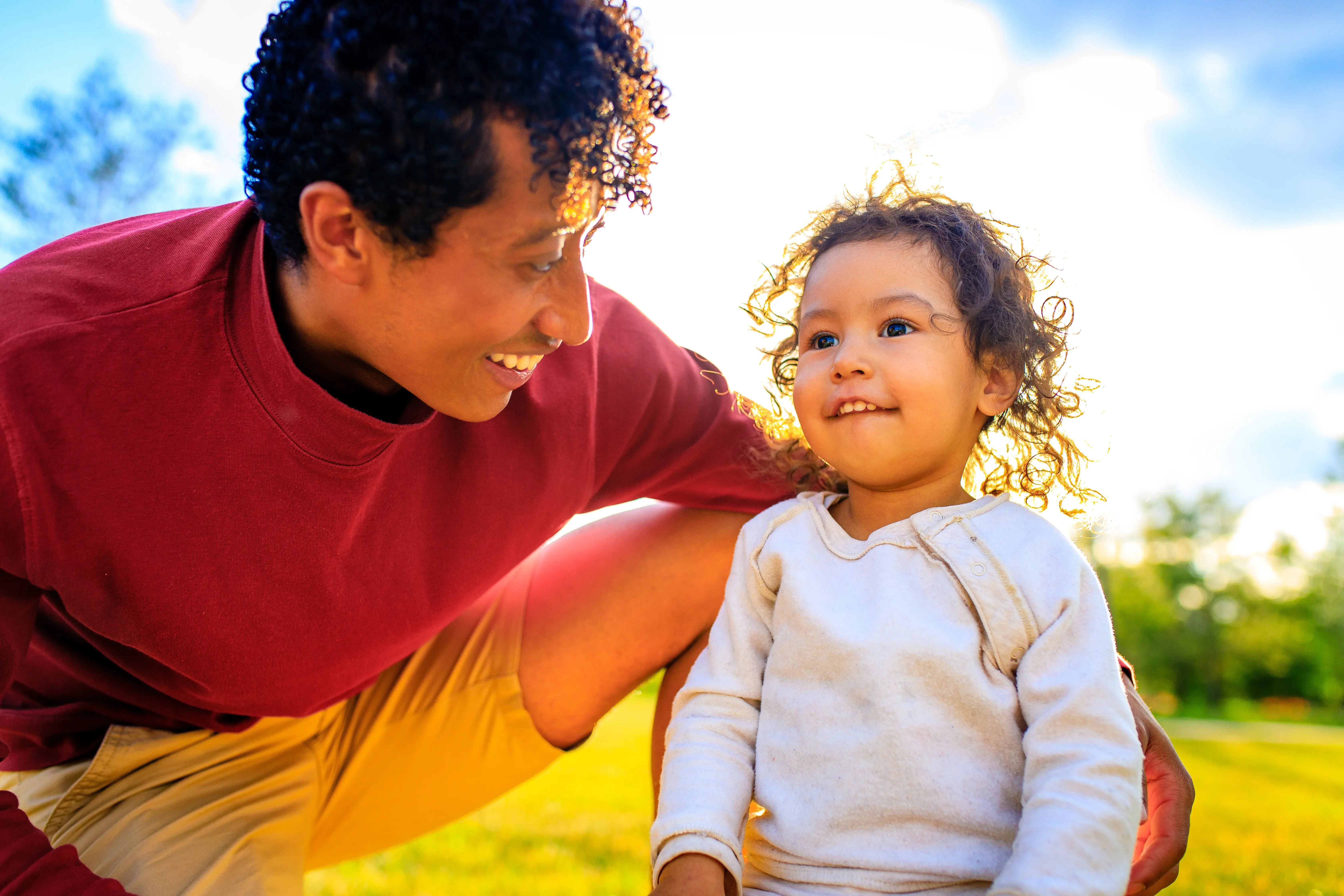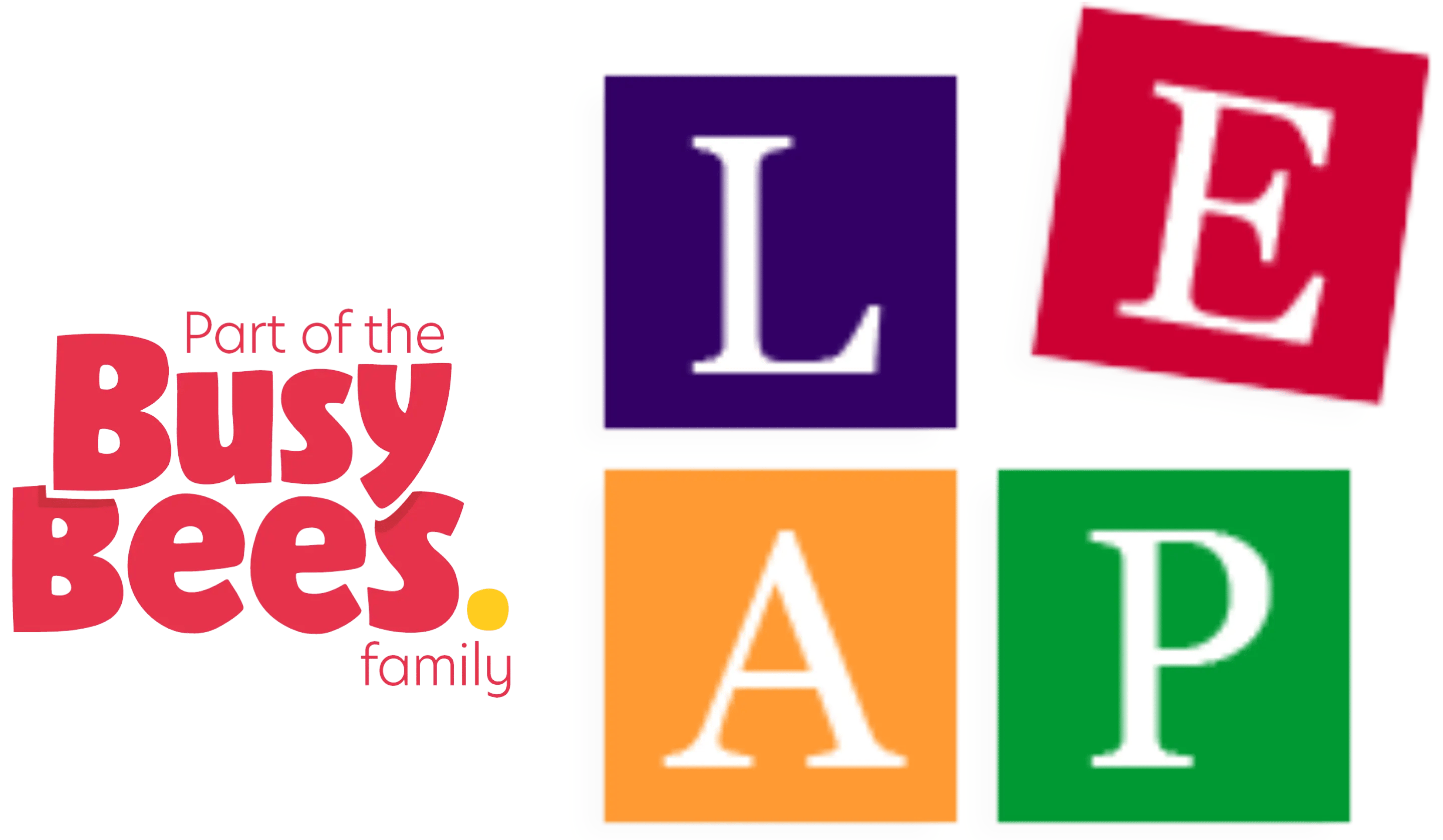Building Relationships In Preschool
How Preschoolers Form Relationship-Building Skills & How You Can Help the Process
Like most parents of young children today, I grew up in a time without computers, the internet, or Facebook. Connecting with friends at that time was more along the lines of knocking on a friend’s door who lived down the block, writing a letter to put in the mail, or calling a friend on a (rotary!) phone. Because my friends and I would spend entire summer days together (unsupervised!) outside from morning until night, social skills were practiced through trial and error and solidified. Problem-solving occurred naturally as we created games and made up rules everyone would agree on. And those rules often changed as we went along (I am sure I am not the only one who used to play “Capture the Flag” and the “bounds” were 2 blocks wide!). We relied on friends for help and support as we were often quite a ways from home or a parent. Falling off a bike once, my sister and our neighbor carried me to our doctor’s office who then called my Mom!
How preschoolers build relationships requires more of a thoughtful process these days. With the way the world around us has grown and changed, children may not have the types of experiences we once had. Building relationships in preschool and early elementary is different these days. Schedules are busier, both parents may work outside of the home, and getting together in neighborhoods isn’t as easy as it used to be.
Back when I was growing up, preschool was also not what it is today. Preschool definitely did not focus on the social and emotional skills that are beneficial in making and being a friend. I can still remember my preschool experience – one day a week in a conference room of the elementary school, where my only vivid memory is coloring in a giant coloring book. Being there to make friends was not a priority for me, my parents, or my teacher (mostly because I already knew the other children in the group who were either my siblings or neighborhood friends).
It is important to provide opportunities for your child to build relationships with peers.
Children need practice in order to learn to share, take turns, resolve conflict, and feel the joy of friendship. This is where relationship-building activities come in. Playdates are a great activity as your child ventures into their world of friendships. Playing together gives children all of this—plus a chance for parents to connect with other adults, too! At the preschool age, being present during play-dates is important as children often need help learning and practicing their new friendship skills. And it’s a good rule of thumb to keep playdates short for little ones—45 minutes to an hour is about right for most toddlers. For older toddlers, you can use their playtime with peers to nurture relationship-building skills by:
- Suggesting, when appropriate, that children turn to peers for assistance or to get answers to their questions: “You are wondering how to get the little doll to sit in the high chair? Why don’t you ask Jeremy? I just saw him feeding her a few minutes ago.”
- Asking children to imagine how their behavior might affect others: “I see that you told Greta that she can’t play ball with you. How do you think that made her feel?”
- Encouraging children to work in groups or as teams, when appropriate: “Sam and DeShawn, could you please put the cars away? Then you can help me get your snack ready.”
- Helping children to see others’ points of view, which encourages empathy: “Casey is feeling sad because his mom had to go.”
All relationships at The LEAP School are important to us – whether it is a teacher and child, parent and teacher, or among children. This is different for every individual – adults and children alike. We understand how preschoolers build relationships and how to foster that. Relationship-building activities, like playing on the rug, reading books, and talking /asking questions about daily activities, are just a few of the ways the teachers will be establishing a rapport with your children.
Noticing what children are doing and making comments lets children know that we understand their goals and are here to support them. For example – as a child paints, a teacher may say, “I see you are using the red paint.” Or “I notice you are making lines with your brush”. Also, providing physical contact like a gentle hug and a lap to sit in often helps comfort children during this time of transition.
Our teachers have planned enriching activities that are sure to capture your child’s attention. With parents, our teachers reach out through involvement opportunities, welcome you into the classroom, and have consistent communication at drop off, pick up, or by email.
Through our own connections with children and modeling ways to build relationships, our goal is to set children on a path that will enhance their relationship-building skills and begin lifelong connections. While we may not live in the day and age of countless, unsupervised hours, we are eager to provide the tools and experience for preschoolers that will build confidence in their own relationships.
You May Also Like

How Actively “Doing” Can Help Preschoolers Learn Best

Thoughts on Parenting Styles




